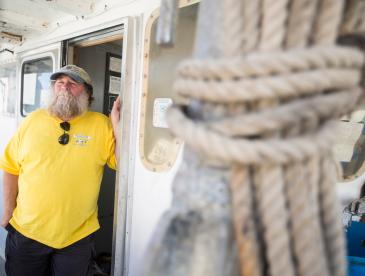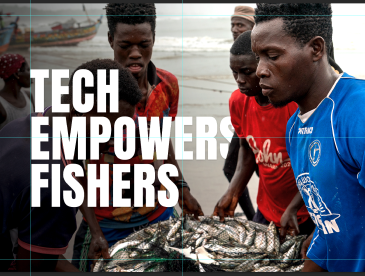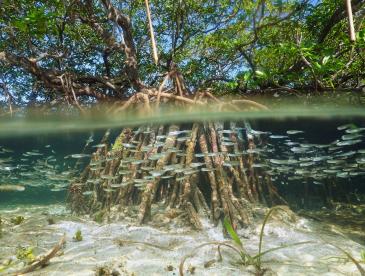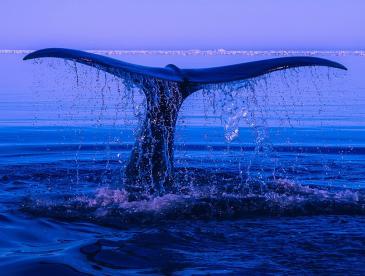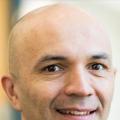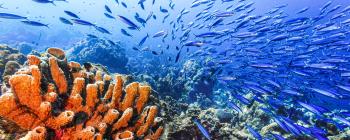
Empowering fishing communities worldwide
The problem: More than 3 billion people around the world rely on seafood as a primary source of protein, yet climate change and overfishing are straining fisheries and ocean ecosystems. This puts people’s nutritional needs and livelihoods at risk, and threatens the variety of life in the oceans, too.
What we’re doing about it: Through policy, technology and financing, we’re empowering fishing communities around the world to take a leading role in protecting ocean ecosystems and promoting sustainable fisheries. Our goal is to ensure that by 2030, fisheries in the world’s top fishing nations are more resilient to climate change.
Watch now: Blue foods can help feed the world
Our work strengthening fishing communities around the world
- Expert Voices
The little-known story of unlikely allies who saved Gulf Coast fishing
- Video
Ghana’s traditional fishers are using new tech to bolster climate-smart fishing
- Blog post
Reducing threats to ocean wanderers is key to their protection
- Initiative
Restoring mangrove creek ecosystems in The Bahamas
- Overview
How oceans can help stabilize our climate
- Article
Fishermen are helping to predict the next big hurricane
Where we work
By focusing strategically on these parts of the world, we can make fishing practices sustainable for more than half of the global fish catch.
Partner perspective
We view EDF as a critical partner to making fishing sustainable in the Philippines.
Eduardo Gongona
Undersecretary, Philippines Bureau of Fisheries and Aquatic Research
Updates
Read the latest articles, blogs and press releases on sustainable fishing.
-
Finding common ground, locals revive a Nevada river
Video, -
Food for thought: How EDF is accelerating climate action in food systems post-COP30
Blog post, -
USA Today: How an unlikely alliance helped save U.S. fisheries from collapse
Article, -
The Excerpt podcast: How an unlikely alliance saved the U.S. fishing industry
Podcast, -
Fishermen are helping to predict the next big hurricane
Article, -
EDF Strengthens Role in Ocean-Climate Governance with New Consultative Status at the IMO’s London Convention and Protocol
Press release,
Sustainable fishing resources
Dig deeper into our work with these resources for researchers, policymakers, journalists and communities.
- Website
Fishery Solutions Center
- Explainer
Overfishing: The most serious threat to our oceans
- Case study
Fishing rights help Gulf fishermen bounce back
- Initiative
Harnessing technology for fisheries and climate-resilient oceans
- Overview
Paving the way for sustainable aquaculture
- Video
Meet the people making fishing more sustainable in a changing climate
Our fisheries experts
Media contact
Reggie Paros
(202) 572-3390 (office)











